Top 3 things you must notice before having the Hyundai oil change
Regular oil changes are essential for your car’s health. Because its engine contains many moving parts that grind against one another. Engine oil is one of the most important fluids in your car. It helps keep your engine running smoothly and lubricates engine components. There are things you must notice before having the Hyundai oil change.
Signs your Hyundai needs an oil change
These signs should tell you when it’s time to give your Hyundai engine a much-needed oil change:
Unusual sounds
If you can hear a clicking, knocking noise, that could mean that your cylinder head is not adequately lubricated, either due to dirty oil or too little oil.
Black-colored oil
Fresh oil is honey-brown and turns darker with use. If the oil is dark or contains dark particles, then you need to change your oil. The oil that has turned black can damage your engine, so it’s best to change the oil right away.
Burning smell
A pungent odor from your car’s interior can indicate low oil levels, an overheated engine, or an oil leak. Whatever the case may be, take your vehicle to the nearest mechanic as soon as possible to prevent engine damage.
Time to have the Hyundai oil change
Normally, you will go to the Hyundai dealership to get some service done specifically the first oil change after your car past 5,000 miles (8,000 km) or six months.
Whether your driving conditions match any shown below, then your frequency of oil changes should be increased:
- Repeated short-distance trips.
- Driving in dusty conditions.
- Moving in areas where salt or other corrosive materials are being used.
- Extensive use of brakes.
- Traveling on rough or muddy roads.
- Driving in mountainous areas.
- Extended periods of idling or low-speed operation.
- Driving in a prolonged period of extreme humidity or cold temperatures.
Choose the right oil for your Hyundai
Check your owner’s manual to see what grade and viscosity of oil your vehicle needs and occasionally confirm that the oil is at its optimal level.
Typically, the oil you need depends on these factors:
Age: A new engine requires advanced oils to match its performance
Engine type: Higher-performance engines need superior-quality oil
Driving environment: When you’re continually driving in high traffic, your engine needs high-performing oil to protect your engine from excess wear and tear.
Manufacturers often recommend two differing viscosity levels for engine oil and the viscosity is rated “XW-YY.”
The first number (besides the “W”) indicates its viscosity at 0 degrees Fahrenheit or -17.8 C. So the lower the number, the slower it thickens during a cold temperature. Next, the second number represents the oil’s viscosity at 212 degrees Fahrenheit (100 C). So the higher the number, the more resistant it is to break down at high temperatures.
Common Types of Oil:
Conventional: Ideal for drivers who have engines with low mileage and who adhere to frequent oil changes.
Synthetic: Synthetic oils can sustain lubrication levels at very high temperatures. so these are often used for high-performance engines.
Synthetic-blend: A common choice among SUV car owners because of its high level of protection. Therefore, the synthetic blend is best for heavy engine loads and high temperatures.
High-mileage: Contains seal conditioners that boost the flexibility of seals and gaskets. so high-mileage oils frequently cost more than standard lubricants.
Finally, setting a regular oil change maintenance schedule can serve as a benchmark for when other maintenance needs are to be met. So start by scheduling your oil change today at your local Hyundai dealer.
More posts related to this post
See more:
Some Hyundai Key fob covers in our store
Leather1993 store does not sell only Hyundai Key fob covers but we also provide a lot of car types of key fob cars. Hope the above article helped you understand more about the things you must notice before having the Hyundai oil change. Please leave your comments below the comment section. Feel free to contact us for more information!




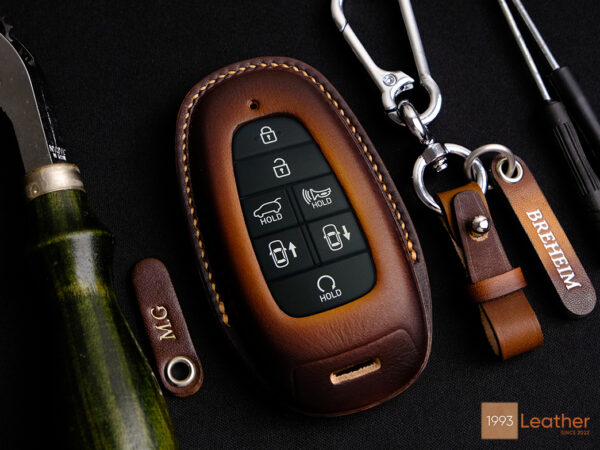
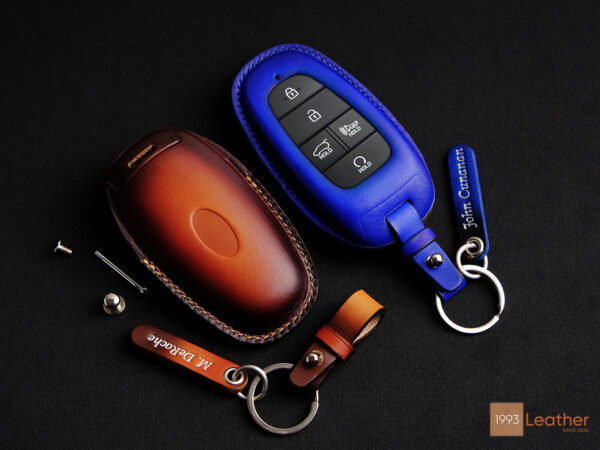

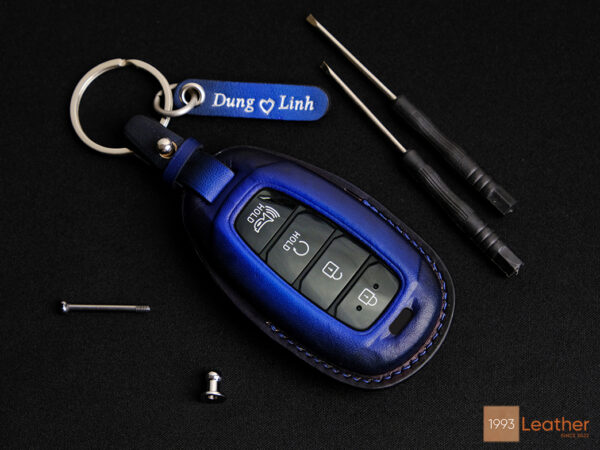


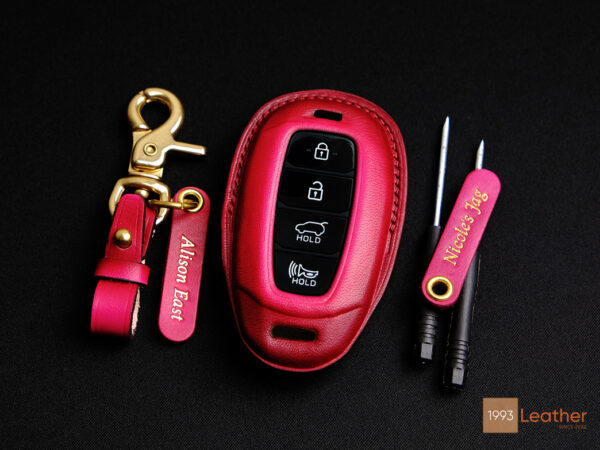
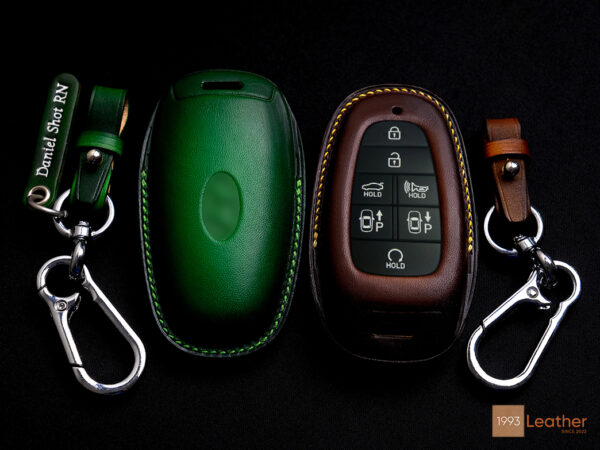
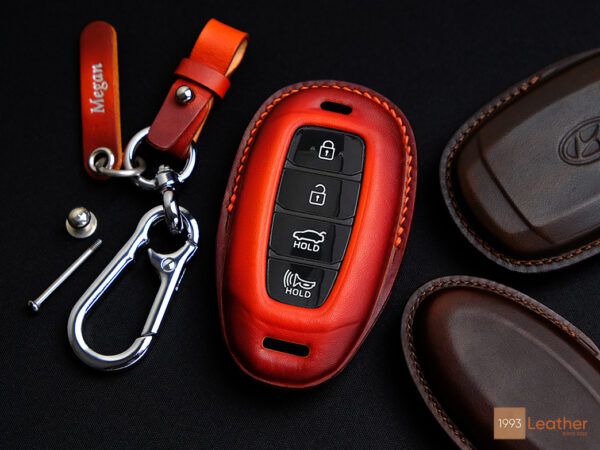
 How to use Volkswagen Remote Start key – Step-by-Step Guide
How to use Volkswagen Remote Start key – Step-by-Step Guide How to Connect Volkswagen with Android Auto – Completely Guide
How to Connect Volkswagen with Android Auto – Completely Guide How to Connect Apple CarPlay with Volkswagen – Full Guide for iPhone Users
How to Connect Apple CarPlay with Volkswagen – Full Guide for iPhone Users Pairing Bluetooth with Volkswagen – A Simple Guide
Pairing Bluetooth with Volkswagen – A Simple Guide How to Recall Chevrolet Memory Seats in Settings – Advanced Tips
How to Recall Chevrolet Memory Seats in Settings – Advanced Tips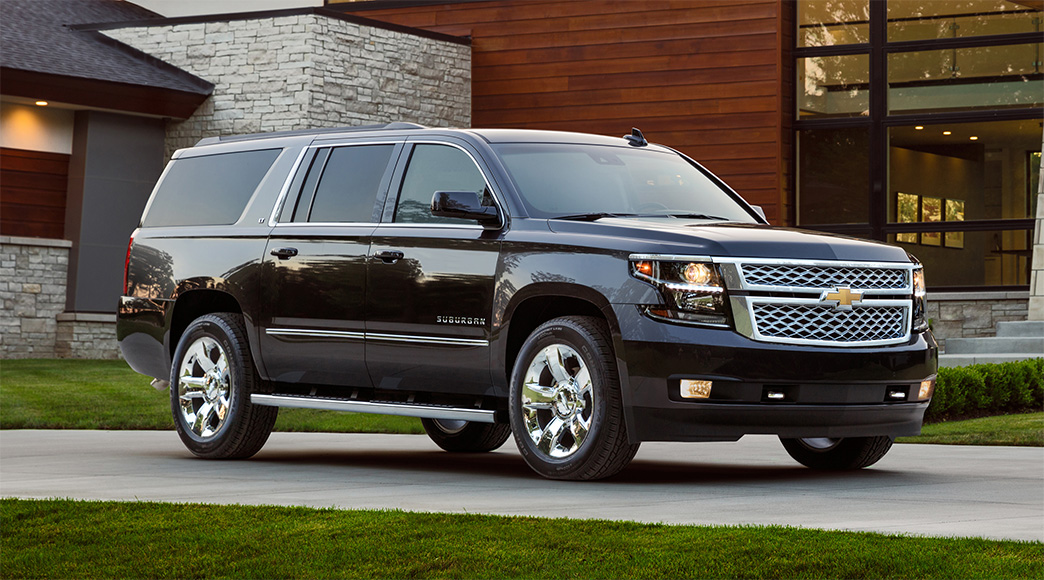 Chevrolet Automatic Climate Control – What It Does & How to Use It
Chevrolet Automatic Climate Control – What It Does & How to Use It


